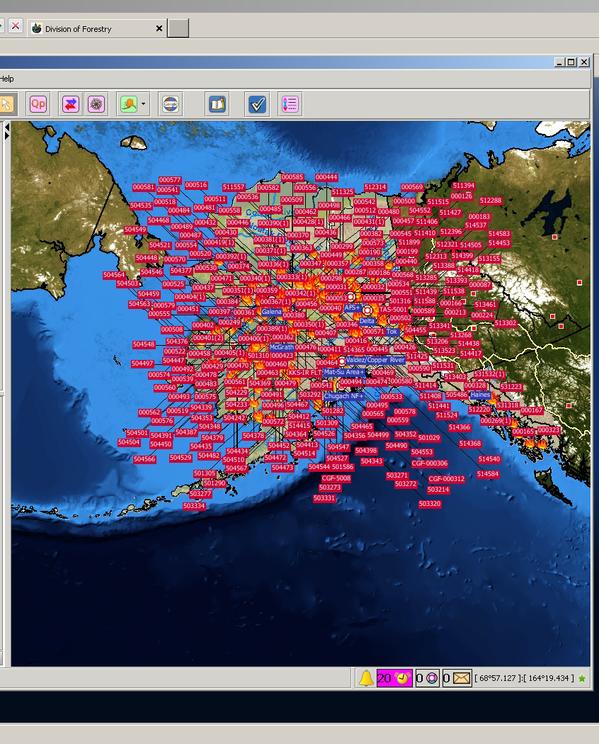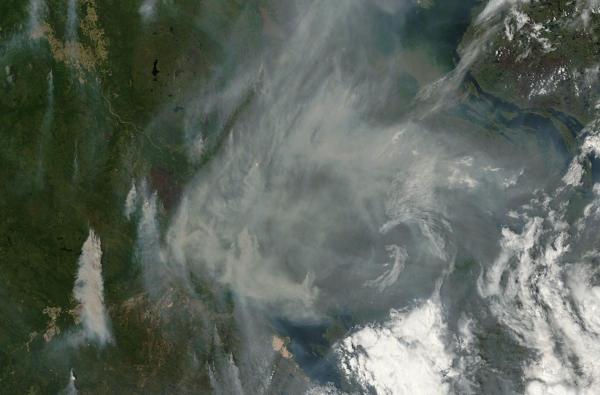Half a Million Acres Burned in Just One Day — Alaska Shatters Record For Worst June Wildfire Outbreak Ever
29
June, 2015
All
throughout the mainstream media last week we heard the same myopic
litany — ‘a massive wildfire outbreak ongoing in Alaska is not
abnormal.’ Well, today, all pretense that there was anything
normal about
the 314 wildfires still raging throughout the state has
gone up in a cloud of boreal forest, tundra, and thawed permafrost
emitted smoke.
As
of 6:28 AM Alaska time today, 1,912,000 acres had burned in Alaska
since the start of the year. That’s roughly 1,800,000 more acres
burned than just before the current wildfire outbreak started on June
18th and 497,000 more acres burned over just the last 24 hour period
alone. By
comparison, the previous worst ever June fire outbreak for Alaska
during 2004 burned less than 1,200,000 acres of the Arctic state.
(Alaska
Interagency Center map of currently active wildfires now burning in
Alaska.)
With
42 hours left in June and with more than 300 fires still active, it’s
pretty clear that the current fire season is a historic,
unprecedented, record-shattering event. One that will almost
certainly break the 2 million acre mark and may show double the
over-all previous record burning during June of 2004. An excessive
new record that is occurring in the ominous context of the hottest
year in the global climate record and a vastly irresponsible dumping
of 50 billion tons of heat-trapping, CO2 equivalent (of which 32
billion tons is CO2) gasses into the atmosphere through fossil fuel
burning and related industry each and every year.
As
Alaska Experiences Worst Ever Burning for June, Northwest Territory
Lights Up
As
Alaska burned through half a million acres of forest in just one day,
a massive heatwave was also setting off extreme wildfires throughout
northwest Canada. It was the same heatwave that broke new temperature
records all across Washington, and the mountain west. Temperatures
in places like Walla, Walla Washington hit 113 degrees Fahrenheit (45
Celsius) on Sunday —
breaking the previous all time June temperature record for the day by
4 degrees (2.2 C). A pulse of heat rising off the back of a
strengthening El Nino in the Pacific, running all the way up the
Western Seaboard and Mountains of the US and driving deep into
northwestern Canada.
(Massive
plumes of smoke emitting from wildfires burning near Great Slave Lake
in Northwest Territory, Canada on Sunday. For reference, bottom edge
of frame is 350 miles. Image source: LANCE-MODIS.)
The
added heat riled wildfires burning throughout much of the permafrost
zone in Canada, pushing blazes to explosive size and dumping massive
plumes of smoke into an atmosphere already heavily laden with
Alaska’s brown carbon pulse. In the above LANCE-MODIS image we can
see about 30 of these fires burning away near Great Slave Lake. Note
that some of the fire fronts in the above image are more than 15
miles long.
Given
the satellite assessment from yesterday, it appears that the same
excessive heat, dryness and permafrost thaw that has set off record
fires for Alaska during June is now also in play for Canada. Initial
reports from Canada’ Interagency Fire Center confirm this
assessment with
138 new fires erupting in just the past 24 hours alone and more than
2,250,000 acres burned for the country since the start of 2015.
As a result of the excessive Arctic heat (associated with both El
Nino and overall human warming) and extreme rate of new fire starts,
we are at risk of seeing unpecedented wildfire conditions continuing
to spread throughout this warming, vulnerable Arctic region.
Links:
Hat
Tip to Andy in San Diego
Hat
Tip to Colorado Bob
Hat
Tip to Greg
Hat
Tip to DT Lange
(Please
help support public, government-funded climate change resiliency
efforts like those aided by various interagency fire centers within
the US and Canada in addition to the critically valuable satellite
tracking provided by the amazing scientific and research teams at
NASA.)





No comments:
Post a Comment
Note: only a member of this blog may post a comment.